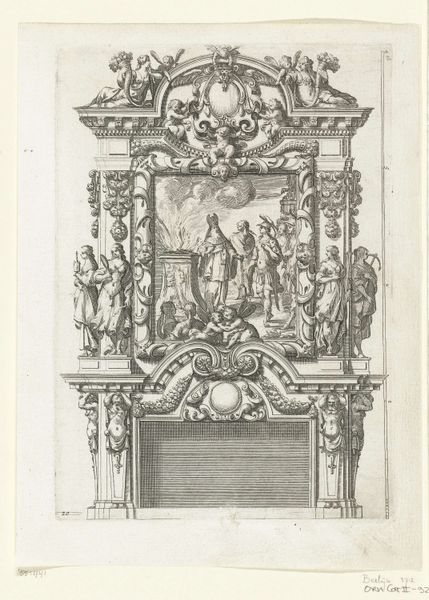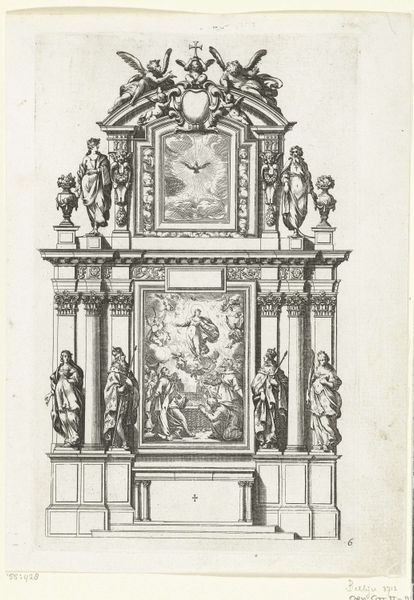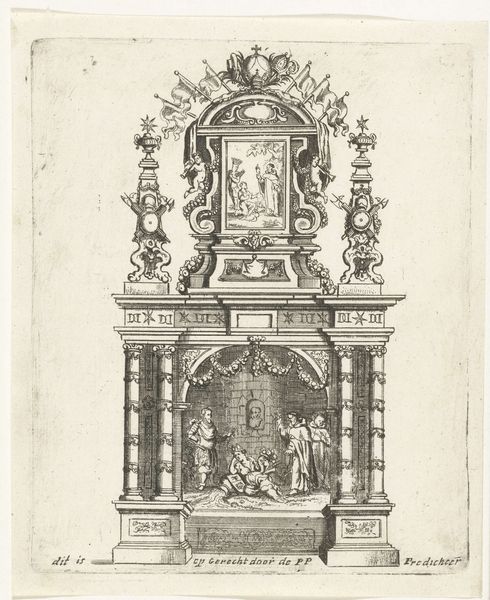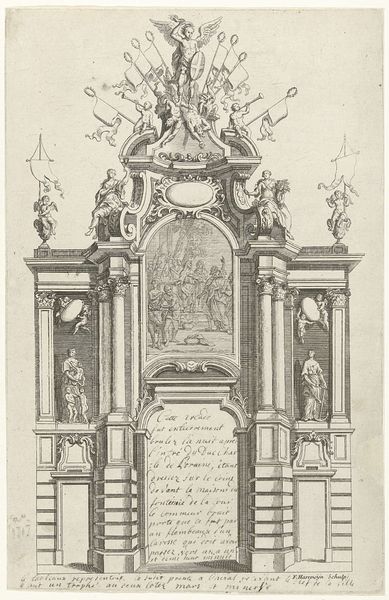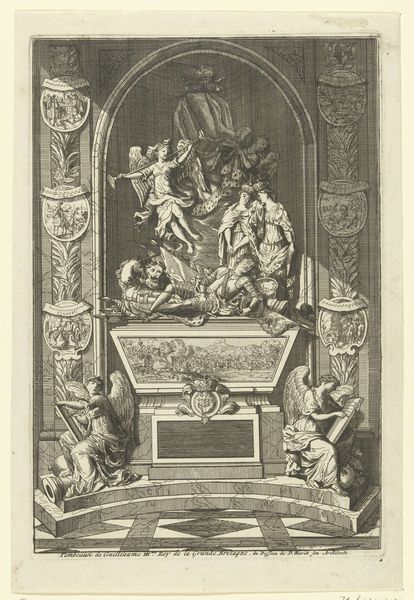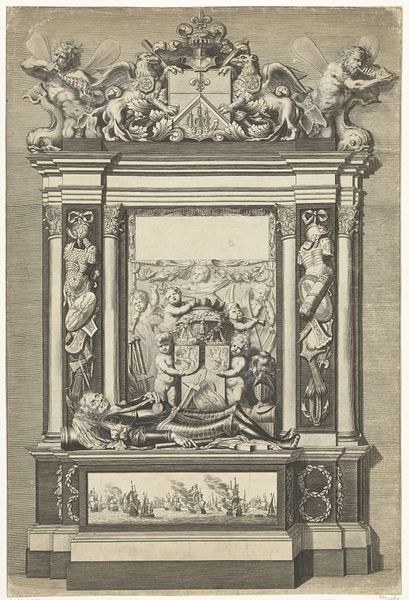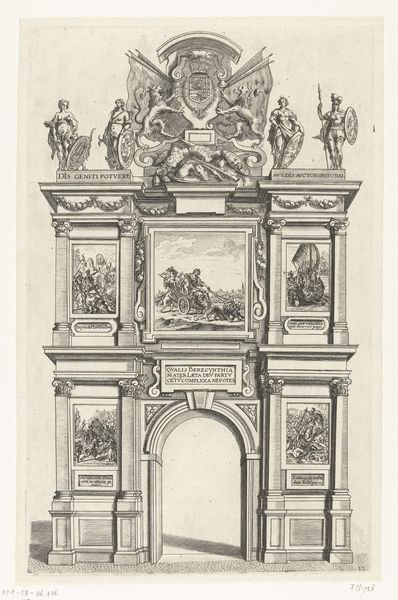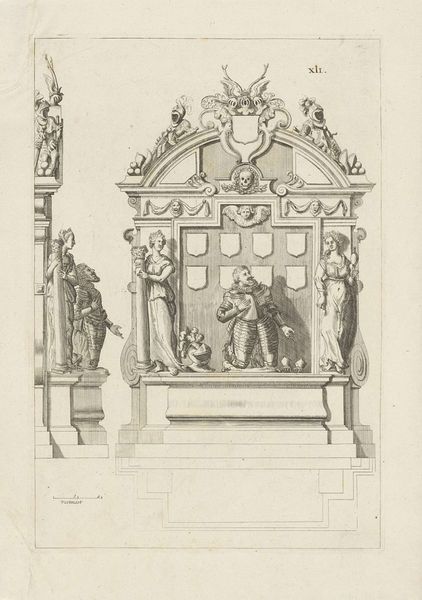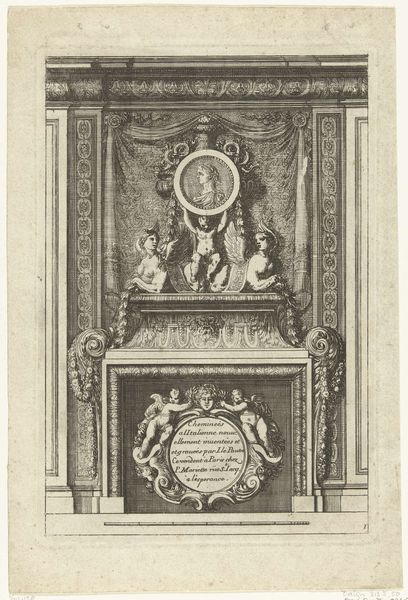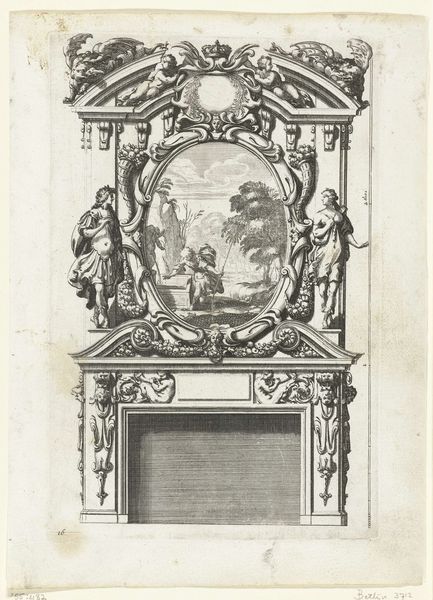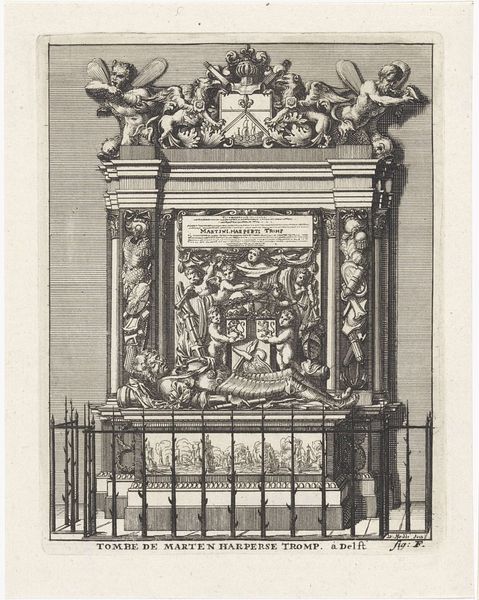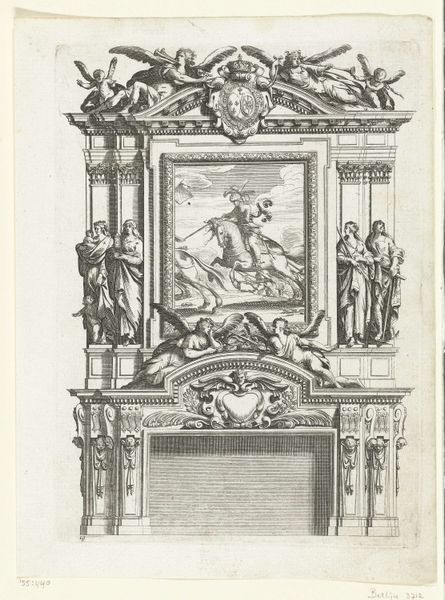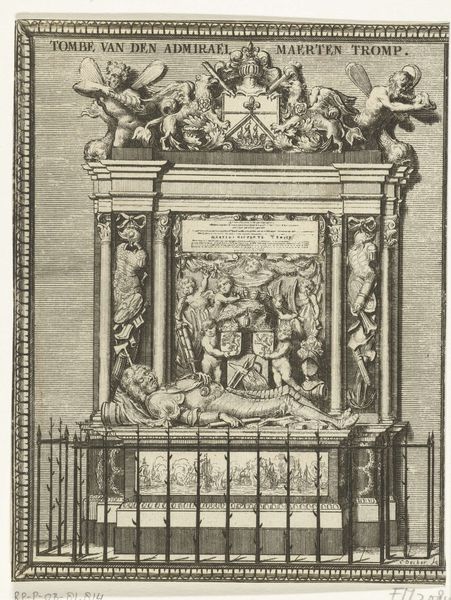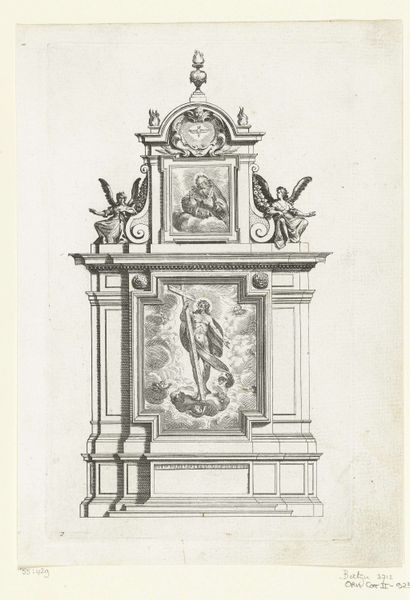
Triomfboog met voorstellingen van het oude kasteel; intocht van Ferdinand te Gent in 1635 (nr. 39) 1635 - 1636
0:00
0:00
anonymous
Rijksmuseum
print, engraving
#
baroque
# print
#
form
#
geometric
#
line
#
cityscape
#
history-painting
#
engraving
Dimensions: height 400 mm, width 260 mm
Copyright: Rijks Museum: Open Domain
This print, made by an anonymous artist, depicts the triumphal arch erected for Ferdinand’s arrival in Ghent in 1635. It’s an etching, meaning the artist coated a metal plate with wax, drew this image into the wax, and then bathed the plate in acid. The acid bit into the exposed lines, allowing them to hold ink, and then the plate could be printed. You can tell a lot about the social context from the material and the way it’s been worked. Etchings like this were relatively cheap to produce, and a fast way of disseminating images. This print would have served as a kind of souvenir for the event, connecting its owner to the spectacle of the procession. The triumphal arch itself would have been made of impermanent materials like plaster and paint, but this etching has allowed its image, and the political message it conveyed, to survive for centuries. So, even a humble-seeming print can reveal a great deal about power, labor, and consumption in its time.
Comments
No comments
Be the first to comment and join the conversation on the ultimate creative platform.
